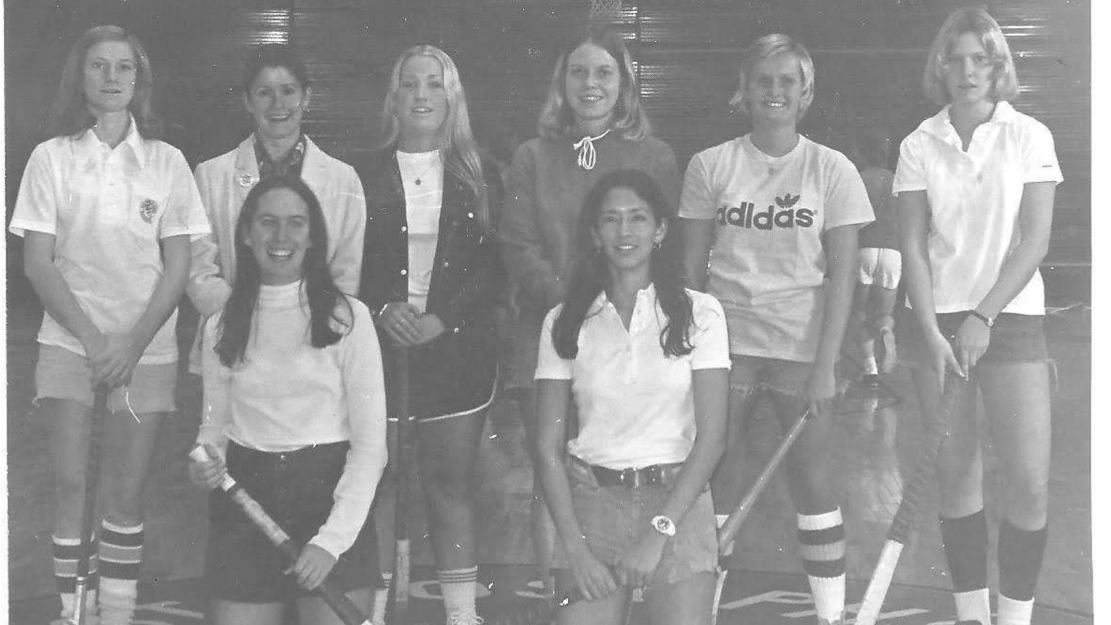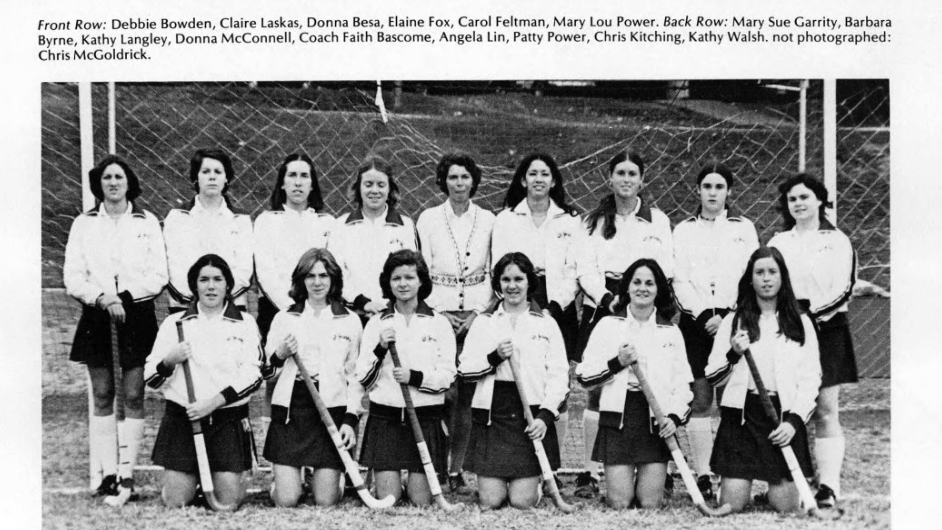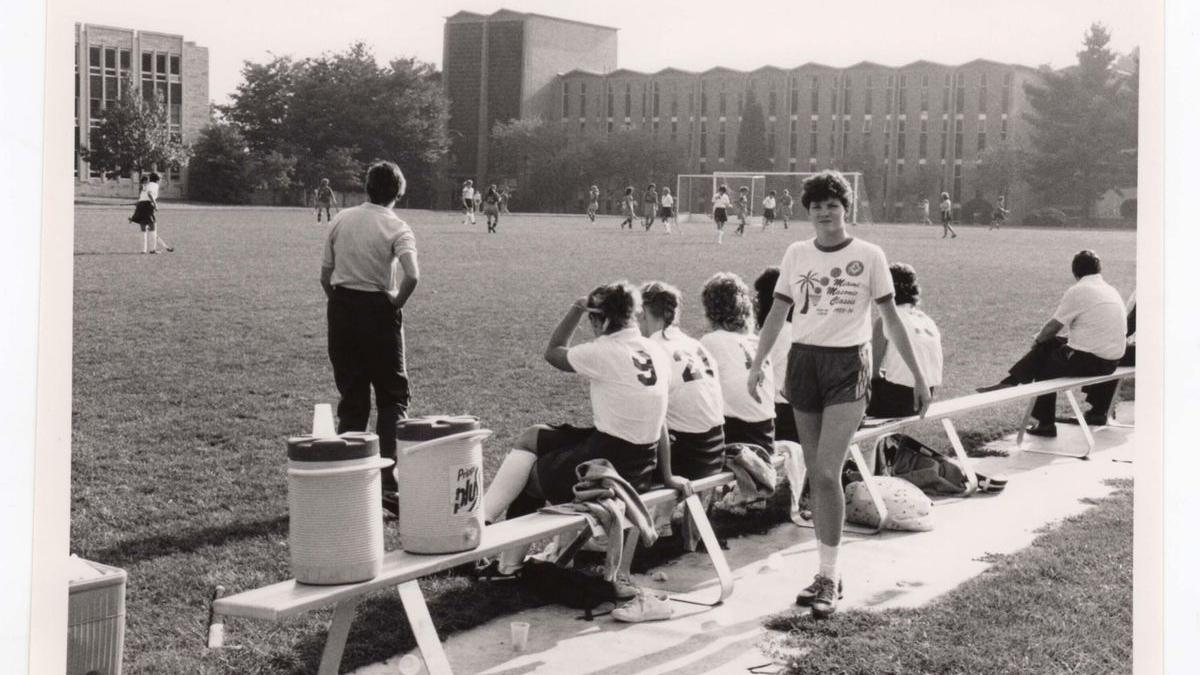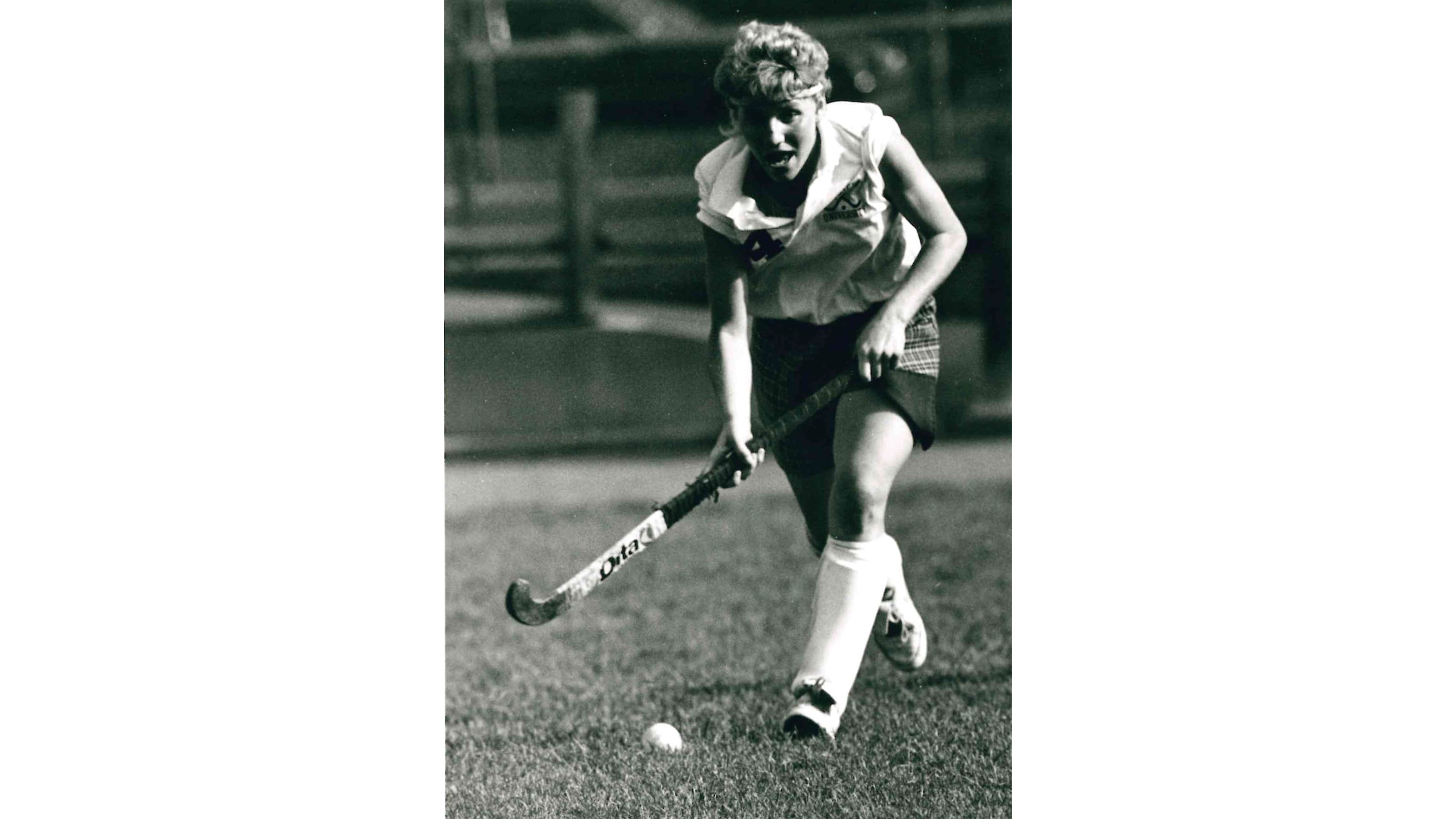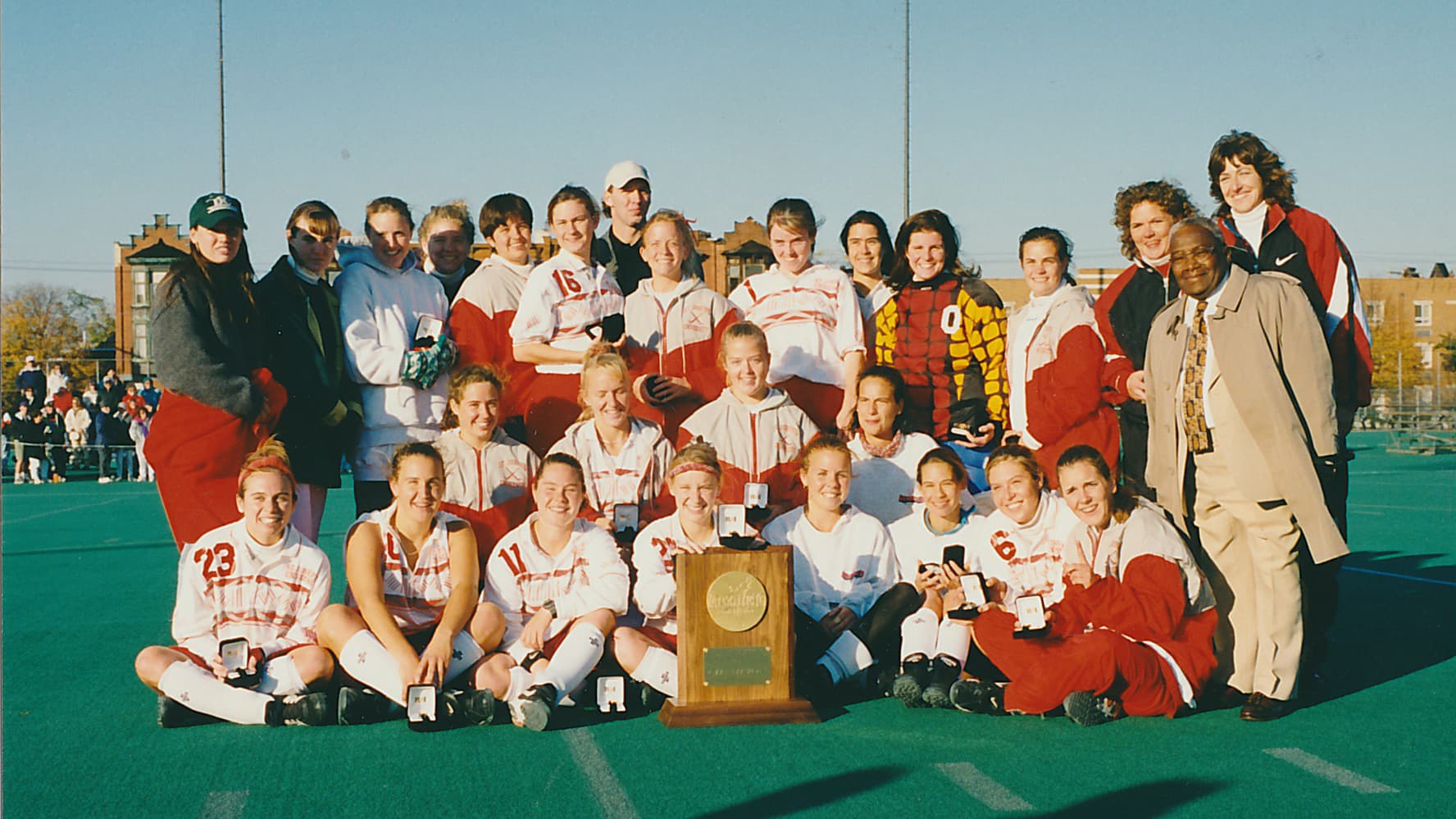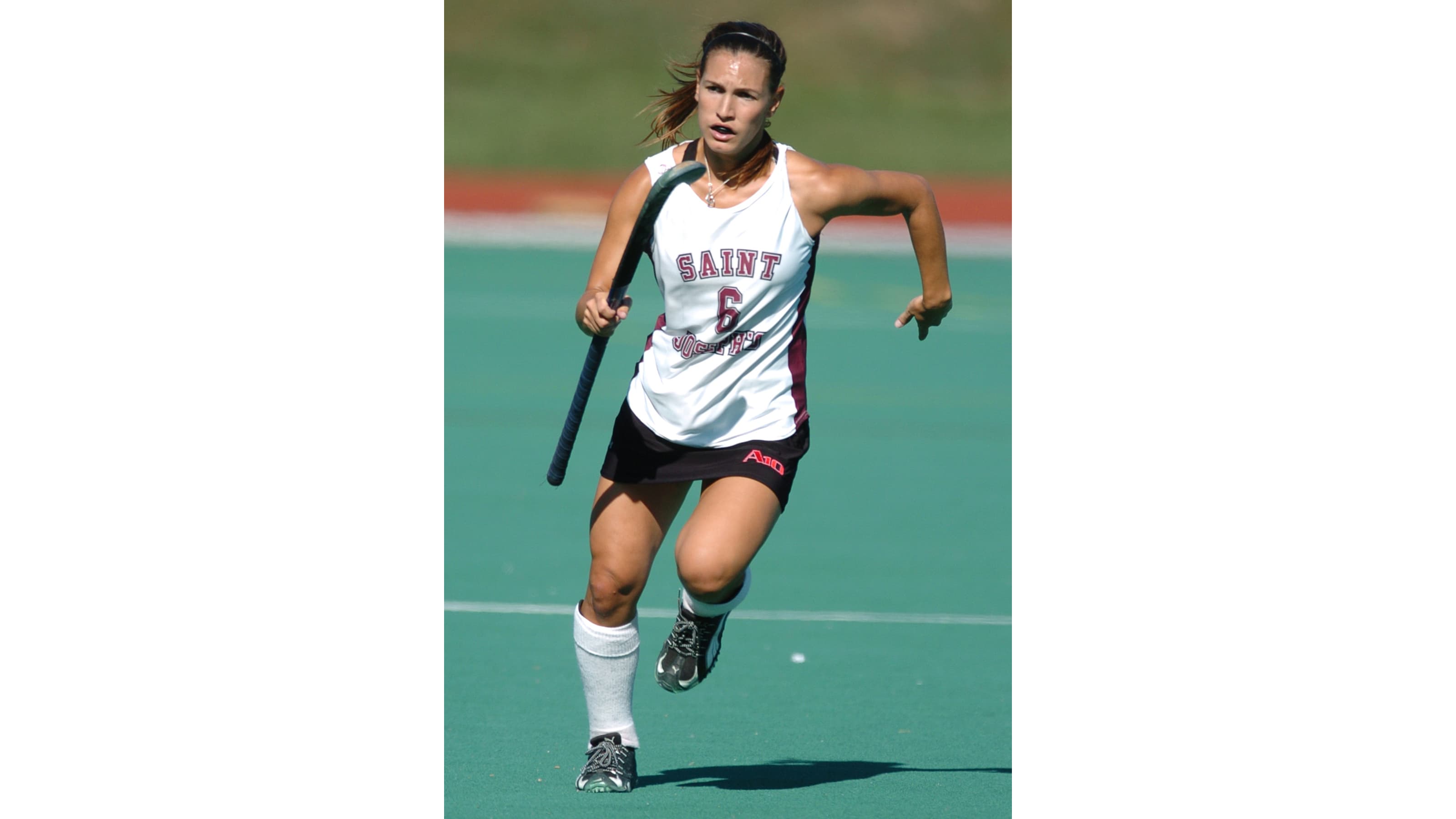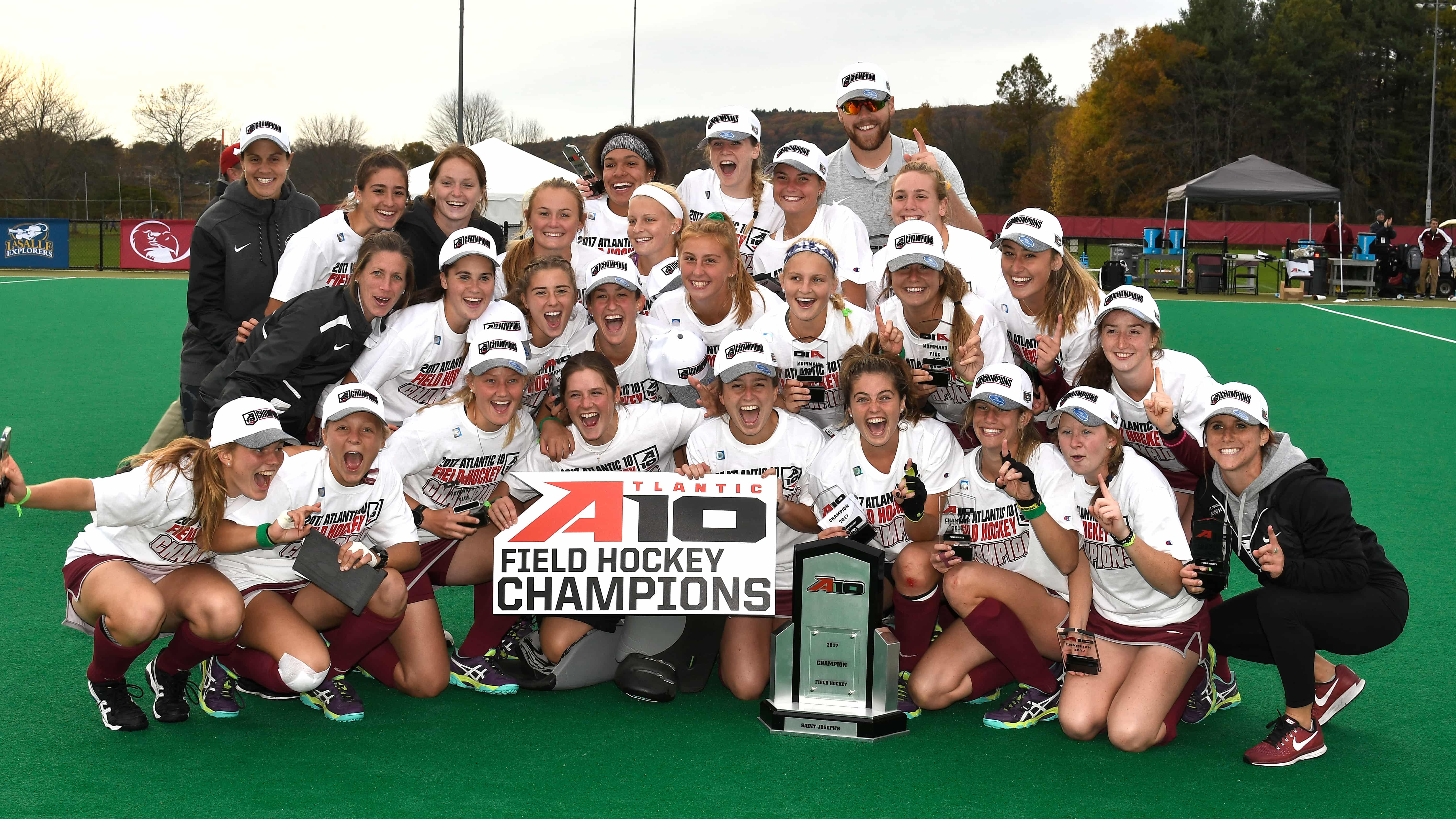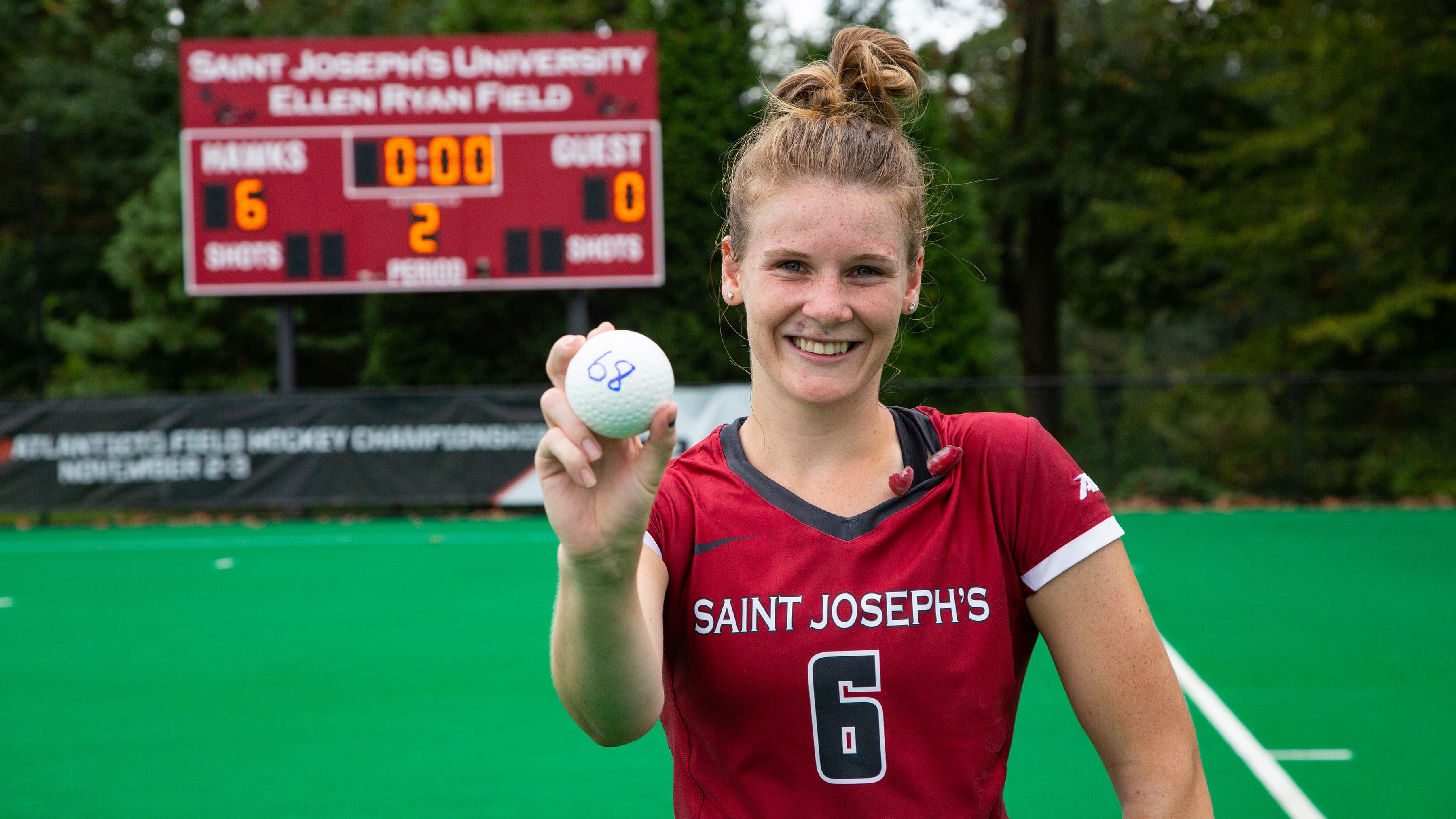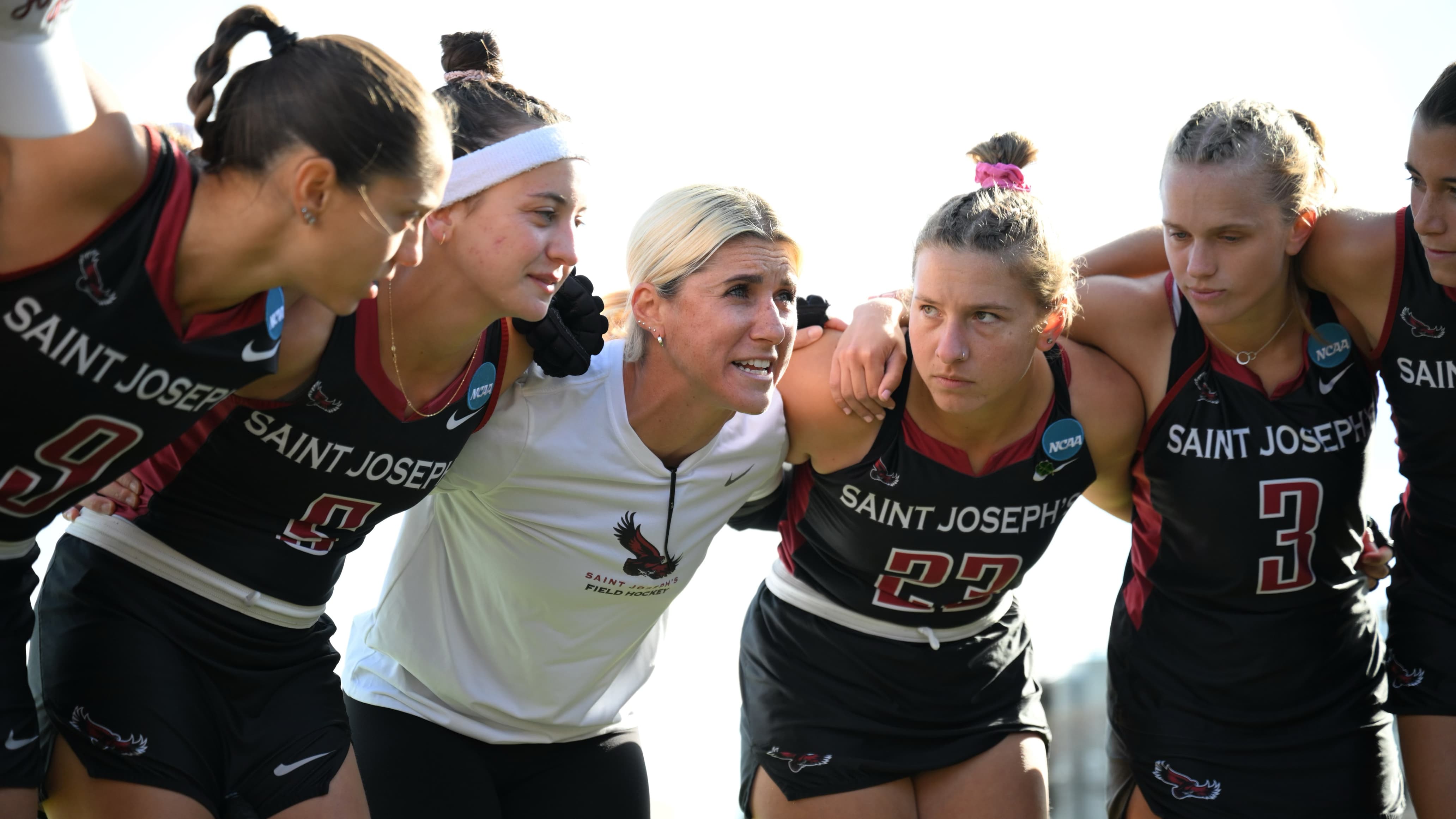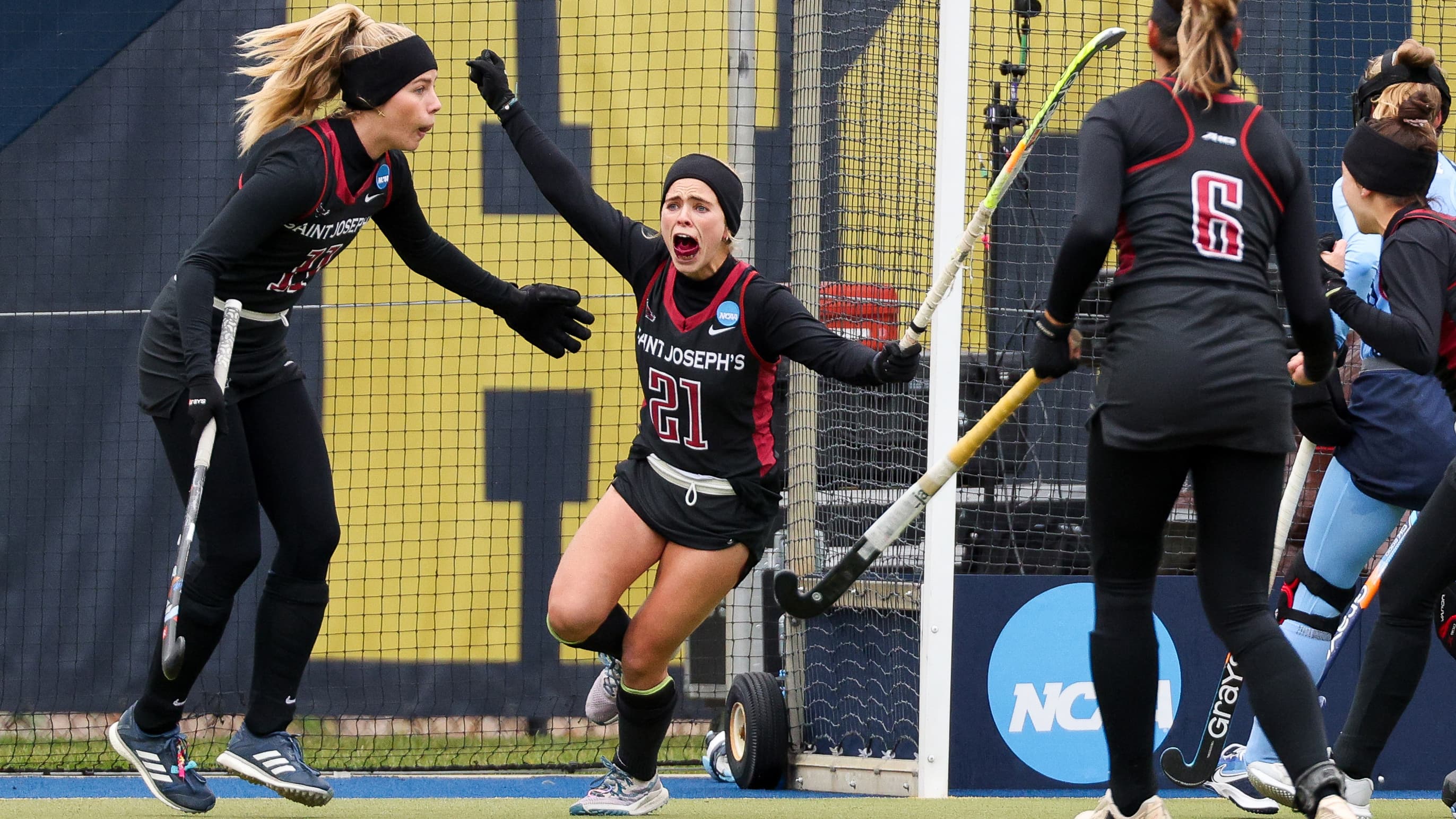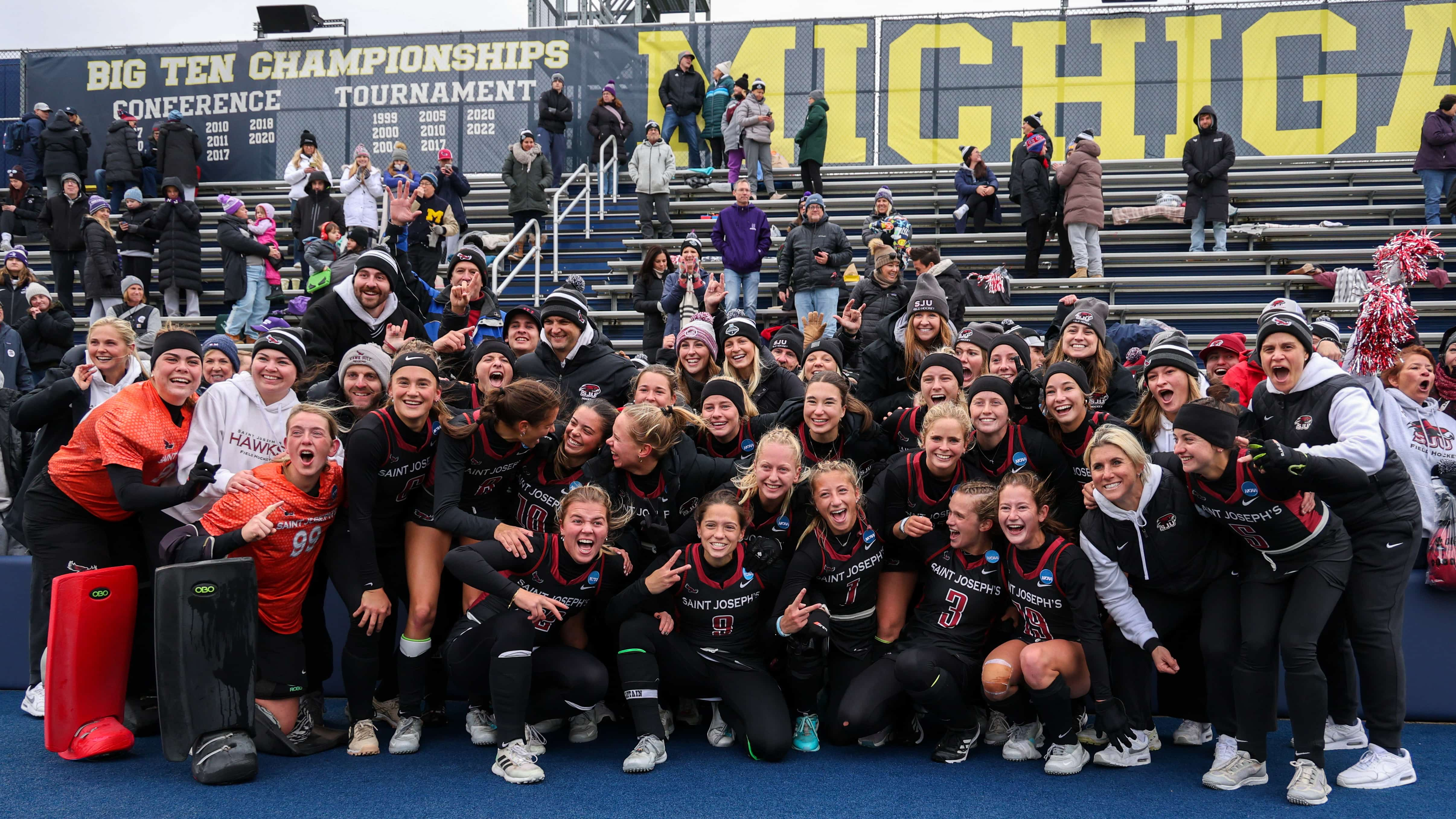A Legacy 50 Years in the Making
How Saint Joseph’s field hockey went from a club sport to a championship team.
By Luke Malanga, BS ’20
The first Saint Joseph’s University field hockey team took shape as a grassroots effort — no scholarships, no dedicated field and no funding. The 15 players carried their own sticks from high school and sold baked goods and cloth stickers to pay for essentials like uniforms and gas money for away games.
Half a century later, Saint Joseph’s field hockey stood at the top of the college game. The 50th edition of the program — aptly dubbed “Team 50” — had done something no Saint Joseph’s varsity athletic team had ever done before: played for a national championship.
The women who founded the program in 1975 weren’t thinking about national rankings. They were navigating a newly co-ed University that, only five years prior, admitted its first class of women as day students.
“You can’t imagine how hard it was,” says Angela Lin, BS ’76, MD, one of the team’s founding members. “Men had club sports, street hockey and just about everything else. Nobody was resisting it, but there wasn’t a clear way to do it.”
In 1975, women made up just 10% of the student body, and basketball and tennis were the only other all-women teams to precede field hockey. However, the transition from an all-male institution, along with the monumental passage of Title IX in 1972, ushered in a new era of women’s college athletics at SJU and across the nation.
Setting the Stage
As a club sport, the field hockey team played whoever it could — local teams like Villanova and Immaculata made up a majority of the schedule. The team’s inaugural season resulted in a 7-1 record, including five shutouts by the Hawks.
The following year, the team was recognized by the University as a varsity sport. A night game under the lights against the University of Pennsylvania felt like the closest thing to the big stage they would ever get, recalls Lin.
But progress didn’t happen overnight. Scholarships were scarce for years, recruiting was largely local and the team didn’t get its own field until 2011.
For Lin, the opportunity to play sports and pave the way for other women was something she was passionate about. She went on to help found the women’s rowing team at Saint Joseph’s in the fall of 1975, which competed in the Dad Vail Regatta that spring — the first time women were allowed to participate in that event.
“Women’s sports mean the world to me,” says Lin, who is now a medical geneticist at Massachusetts General Hospital in Boston. “The skills I had organizing that team are exactly the same that I use now as a doctor directing clinics for rare syndromes. I just wish women and girls everywhere had the opportunity to play sports.”
Leveling Up
In the mid-2010s, Saint Joseph’s made two major investments in the program: facilities and recruiting.
“When we acquired the former Episcopal Academy campus in 2008, we committed to a field hockey-only field,” says Don DiJulia, BS '67, the longtime Saint Joseph’s athletic director, who served from 1976 to 1981 and again from 1988 until 2018. “That, along with better recruiting, helped us become competitive in the Atlantic 10.”
The recruiting effort went beyond the Philadelphia area — expanding to Europe, South America and Oceania. As a result, the team grew more competitive.
In 2015, a forward from New Zealand, Anna Willocks, BS ’19, arrived on campus.
“I was initially attracted to the amazing opportunity to travel overseas and study in America, and soon realized there was a special culture here that aligned well with my values,” recalls Willocks. “I loved that there was a focus on building a supportive environment where student-athletes feel valued while also empowered to better themselves.”
By the time Willocks graduated, she had rewritten the school’s record book.
Willocks’ personal accolades — of which there are too many to list — include being the program’s all-time leading goal-scorer and becoming the first Hawk to earn three NFHCA All-America honors. But it’s the impact Willocks had on the trajectory of the team that also makes her arguably the greatest player in program history.
She helped lead Saint Joseph’s to its first Atlantic 10 championship in more than two decades, proving the Hawks could win at a high level in this modern era of the sport. Willocks now plays in New Zealand’s Premier Hockey League and for the New Zealand Women’s National Team.
“I hope that I left a legacy, one that other athletes and the teams that follow can look up to and try to beat,” she said in a 2019 interview with The Hawk.
For a small school like SJU, recruiting against institutions with bigger facilities and more resources can be challenging, but international recruiting helped the program draw from a larger pool — including countries that compete in field hockey at a higher level.
“Field hockey is mainly a Northeast, Mid-Atlantic sport,” DiJulia says. “We weren’t winning many top recruits over Penn State, Rutgers or Princeton. That changed when we went international — Lynn Farquhar brought those connections and Hannah Prince kept them going.”
Keeping the Momentum
Former head coach Lynn Farquhar took the helm of the program for eight seasons, during which she transformed the team from a conference contender into a national force. Under her leadership, the Hawks won five Atlantic 10 regular season titles and four tournament championships, reaching the NCAA Tournament for the first time in school history.
By the time she stepped down in 2021, the foundation was set. But Saint Joseph’s needed a coach who could build on the momentum Farquhar had created.
Jill Bodensteiner, JD, MBA, vice president and director of athletics at Saint Joseph’s, took an unconventional approach to the hiring process, putting the decision (at least in part) in the hands of those who knew the program best — the players.
“I did something very unusual — I formed a committee of student-athletes and let them interview the finalists,” Bodensteiner says. “It’s a player-led department, and I trusted them to have a say in who I hired.”
The decision led them to Hannah Prince, a former assistant under Farquhar and a coach with a vision to take Saint Joseph’s even further.
“It was a fun challenge,” Prince says about stepping into the head coach role — admitting that there was still a lot of player development needed. “No matter who as players or staff come in and out of the program, we always live by our standards, our core values, and really just have that strong team culture.”
Prince has led the Hawks to an A-10 tournament championship every year under her leadership. At the start of the 2024 season the team had an even more ambitious goal — to reach the NCAA Final Four. The team accomplished this goal with a 1-0 victory over Princeton. They did so on their home turf, Ellen Ryan Field, with a crowd of Hawks fans lining all sides of the fence.
Being a Hawk is such a privilege, especially when you look at how all of the Hawks support one another. Making program history is surreal. We had lofty goals but not once did we doubt ourselves."
Jordan Carr, MS ’26
Field Hockey Midfielder
Hosting NCAA Tournament games was the culmination of years of work and aligned with the trajectory of a team making a statement on the national stage. Renie Shields, the senior associate athletic director, had been fighting for it from the start.
“Watching Renie tear up in the locker room when they said we were hosting was unbelievable to me,” Bodensteiner says. “All of her hard work had paid off. And it was her who was pushing from the beginning, like, ‘We have to host, we have to host it.’”
The Hawks weren’t done as they entered the semifinal game and knocked off previously unbeaten, two-time defending national champion North Carolina to reach the national championship game.
“I received 359 texts when we beat North Carolina — more than when I was at Notre Dame and we won a national championship,” recalls Bodensteiner. “One of the most joyful things of this run was seeing the alumni engagement and pride. People coming back, reconnecting with the University — that’s an ultimate measure of success.”
Graduate student and midfielder Jordan Carr, MS ’26, says there were many in the field hockey community who didn’t think the Hawks could defeat UNC to make it to the championship, but the team’s belief in themselves and the support from the SJU community was unwavering.
"Being a Hawk is such a privilege, especially when you look at how all of the Hawks support one another," says Carr. “Making program history is surreal. We had lofty goals but not once did we doubt ourselves.”
Lin is amazed at what the program has become.
“I watched their NCAA run via livestream,” she says. “It was thrilling to see how far they’ve come.”
Fifty years after Saint Joseph’s field hockey began, Team 50 isn’t asking for a seat at the table anymore. They took it — for themselves and all the Hawks who came before them.

